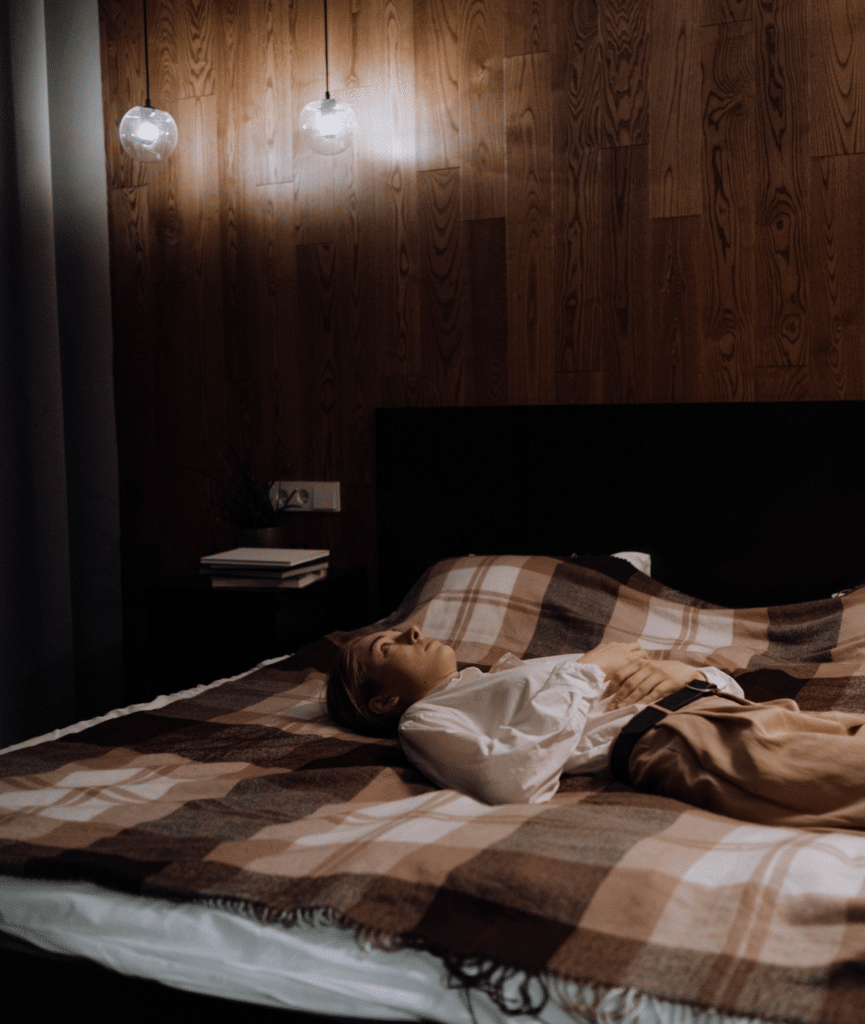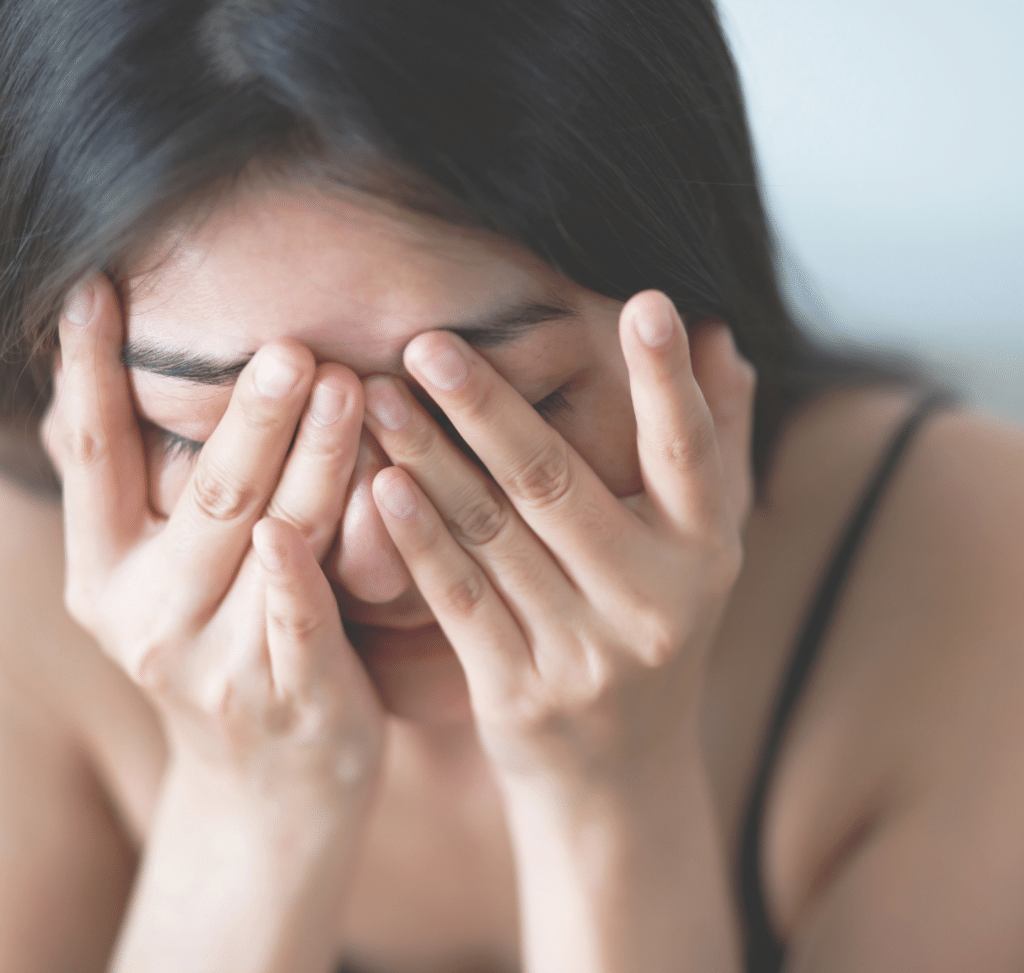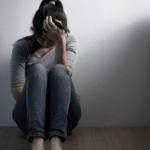Depression Relapse Prevention – Long-Term Recovery Strategies

You feel like you’re on the road to long-term recovery from depression, but suddenly there’s a sharp turn in the road and you can feel yourself heading straight back to the place you’ve fought so hard to escape from. Does this sound familiar? Maybe it’s just part of the normal ebb-and-flow of living with your emotions, but perhaps it’s that thing you’ve heard about and fear: relapse.
A depression relapse is where symptoms of depression come back after you’ve been feeling well and back to your normal self for a while.1 At least half of people living with depression are likely to experience at least one relapse episode, and it can feel disheartening if it happens.2,3
While you’re bound to feel disappointed and even scared if you feel yourself slipping back into depression, we want you to know that you don’t have to feel like this forever. Understanding the signs of relapse, treatment options available, and how to prevent a relapse in the future can help you make a long-term recovery from depression and be able to live your life on your own terms.
On this page, we’ll look at the signs you’re having a relapse, what to do if you notice signs of depression creeping back into your life, and what you can do to prevent and reduce the chances of you experiencing a depression relapse in the future.

Key Takeaways
- Depression can return even after recovery; Relapse prevention helps identify early warning signs and reduces the risk of recurrence.
- Recognizing personal triggers (stress, sleep disruption, major life changes, isolation, missed treatment) helps you take early action.
- Healthy lifestyle habits — regular sleep, balanced nutrition, enjoyable activity, exercise, and stress management — support long‑term mental health.
- Ongoing care (therapy, medication adherence if prescribed, check‑ins) plus self‑monitoring prevents relapse and helps maintain well‑being.
Table of Contents
How to Avoid a Depression Relapse
10 Signs of Depression Relapse
When a depression relapse happens, you might see the same warning signs from your last depression cropping up again. Alternatively, depression may look and feel different this time, coming with a different set of symptoms. Let’s look at ten common signs of depression relapse below.4,5
1. You Feel Down or Hopeless
People often describe depression as feeling heavy and continuous, like a void that consumes everything and makes it feel like nothing matters. Others describe feeling down or hopeless as feeling like they’re watching their life from the outside, or that they feel nothing at all. If you’ve been feeling sad, hopeless, or low for a while now, it could be a sign of depression relapse.6
2. You Can’t Find Joy
We all need things that bring some joy into our lives, it can be what keeps us going. Depression has a way of draining the joy and life out of things, making what you once loved and getting pleasure from feeling unimportant or unenjoyable. When your favorite activities don’t feel good anymore, you may be having a relapse.7
3. You Withdraw From People
If you’re starting to avoid people and situations, it might be worth considering why. It can take a lot of effort to hide symptoms of depression, which means you don’t have any energy left to deal with people and potentially difficult situations.8 If that’s part of the reason, you may be starting to feel depressed again.
4. You Feel Exhausted
Even after sleeping well, you still feel exhausted, and maybe you have a few little aches and pains niggling, too? Depression-related fatigue can continue even after a good night’s sleep and can be accompanied by aches and pains. Therefore, these could be signs of depression relapse creeping up.1
5. You Notice Yourself Getting Irritable
It might be the little things that bother you, and you find yourself snapping at your loved ones, friends, and colleagues, feeling irritated by things that don’t normally bother you.6
This can happen because a depression relapse can make everything feel overwhelming, which can give you a lower tolerance for small annoyances. What’s more, when we experience more negative and self-critical thoughts, these often get turned outwards, making others’ actions feel more irritating.
6. You’re Having Problems Sleeping
Whether it’s sleeping too much, sleeping too little, tossing and turning unable to get to sleep, or waking up lots in the night, changes in your sleeping patterns can be an indication of relapse.9
7. Your Appetite Has Changed
If you’re in a relapse, you might be turning to comfort food to try and lift your mood or as a way to soothe your difficult feelings. On the other hand, maybe you’ve lost your appetite altogether. A change in appetite can be a sign of depression returning.10
8. You Notice Negative Thoughts Creeping In
You notice those negative thought patterns seem to be turning up more often than they used to, talking yourself down, feeling defeated, and criticizing yourself over and over again. If you’re having these types of ruminating thoughts, it might be a symptom of a relapse.3
9. You Have ‘Brain Fog’
Depression can take the energy out of you and fill your head with negative thoughts. You might have trouble concentrating, focusing, or remembering things, as these are common difficulties for those struggling with depression.11 If you notice brain fog, this can be a sign of depression relapse.
10. You’re Having Thoughts About Suicide
Feeling hopeless or down, having negative thoughts, and feeling like there’s no escape. You might be having thoughts about suicide, which is another sign of depression relapse.1 If you are having suicidal thoughts, feel like you are in a crisis or that you might harm yourself, it’s important to seek help immediately.
What To Do if Depression Comes Back
There can be many reasons why depression comes back, including a stressful life event, a medical diagnosis, or stopping your depression treatment too soon.12
If you have felt uncomfortable symptoms bubbling up and they’ve stuck around for over two weeks, you may be experiencing a depression relapse. If you think you might be having a depression relapse, there are treatments that can help. Depression therapy, residential treatment, support groups, and medications are available for you, which we’ll explore below.

Therapy for Maintaining Good Health
Therapy is an effective treatment for depression and can bring long-term relief.13 Certain therapy approaches have been studied and shown to help reduce symptoms of depression:
- Mindfulness-Based Therapy (MBCT): MBCT brings together mindfulness and cognitive therapy to help you focus on the present moment, including your thoughts and feelings when they arise. It involves practices like breathing exercises and meditations to help increase your focus and awareness in the present moment. You can learn ways to recognize unhelpful thoughts as they happen in the moment and discover how to respond to them kindly without judgment.14
- Cognitive Behavioral Therapy (CBT): CBT is a type of therapy that looks at changing unhelpful thought patterns, behaviors, or beliefs you have that might contribute to depression. You can learn to recognize the negative thoughts and behaviors and to challenge and replace them with healthier ones which will help you feel better.15
- Eye Movement Desensitization and Reprocessing (EMDR): EMDR involves guiding your eye movements while recalling disturbing events in a particular way so that the brain can process any unresolved memories to help you feel less distressed.16
- Interpersonal Psychotherapy (IPT): IPT helps you to understand how your relationships with other people are affecting you, allowing you to discover negative patterns or issues in your relationships, which lets you plan strategies for how to cope with them.16 This allows your relationships to improve with time, which may help symptoms of depression ease off.
Seeking Support From a Treatment Center
If managing day-to-day feels impossible, residential treatment might be a good option for you. Some of the benefits of residential treatment include:
- Constant Support: you have access to professional support around the clock, and there will always be someone available to help you.
- Focus on Recovery: you won’t have to worry about things like chores or home responsibilities while you’re a resident. The focus is completely on your recovery, understanding your emotions, identifying your triggers, and learning strategies and coping skills to help you manage your depression.
- Relief From Depression Symptoms: you can benefit from therapy sessions, medication, and activities all designed to help you recover.
- A Safe Space: A residential treatment center provides you with a safe space for you to heal.
Depression Recovery Support Groups
Depression can make you feel isolated, which is why it can be useful to join a support group – to meet people who can understand what it’s like to have depression. Joining a support group can help reduce your symptoms of depression.18
When you think of a support group, you might imagine everyone sitting in a circle of chairs and talking about their problems. While this is a big part of it, that’s not all that happens. There can also be social events and activities designed to help give your mood a boost.17
Medication for Depression
Antidepressant medication can be a useful option for managing symptoms during a relapse, especially if you have tried medication for it before and it has worked well for you. Research shows that antidepressants can help to improve symptoms of depression in adults, especially if your symptoms are more severe.19 They can improve your mood and give you a clearer headspace to start working through problems. They are generally safe, and you can begin feeling the positive effects of them within as little as a few weeks.
How to Avoid a Depression Relapse
Let’s state the obvious: you don’t want to go through depression again. But when the risk of relapse seems so high, are there ways to avoid it?2,3 Let’s look at some simple changes you can make towards preventing depression relapse and how to stay depression-free.
Coping Strategies for Depression Recovery
- Meditation: Developing a regular meditation practice is a great way to train your focus and awareness so that you can develop a mentally clear and emotionally calm state of being. Research shows that regular meditation creates positive changes in the structure of the brain, which can help reduce the risk of depression.20
- Sleep: Studies have found that having too little or too much sleep can actually increase the risk of depression.21 Creating a good sleep routine, setting your alarm for the same time each day, and having a regular bedtime can be beneficial for your overall health, as well as reducing the risk of a relapse.
- Journaling: This is a good way to get thoughts and feelings out of your head and to be able to reflect and notice any changes or patterns that might be starting. Studies show that journaling can improve your mood and boost your general well-being.22
- Do Things You Enjoy: Research has found that having a hobby can be linked to lower levels of depression and greater levels of happiness. Maybe it’s the right time for you to pick up an old pastime, or seek out a fun new hobby to try?23
Lifestyle Habits to Prevent Depression
- Exercise: Exercise causes the release of feel-good chemicals in your body (endorphins and dopamine) which can help improve your mood and your energy. Research shows that exercising can actively reduce depression symptoms. One study found exercise was as effective at symptom reduction as antidepressant medication.24
- Diet: Various research studies have been carried out to see how what we eat can affect our mental health, and certain foods seem to come out on top. Good nutrition is linked with low levels of depression, especially eating a Mediterranean diet which is usually rich in fruits, veg, fish, and whole grains.25
- Mindfulness: Building a mindfulness practice into your routine can help you to slow down, feel like you’re truly in the present moment, and breathe. It can help reduce repetitive negative thoughts as well as stress and anxiety.26,27 You could practice mindfulness while washing the dishes or when walking down the road, it’s all about bringing awareness to the here and now.
- Social Connections: Did you know that good social connections are one of the best factors to protect us against depression? This could mean talking with a loved one, meeting a friend for coffee, chatting with people at the end of an exercise class, or joining a support group. Depression can make us want to withdraw and isolate ourselves, so it’s great to stay connected with others instead.28
Reach Out to Mission Connection Today
Sometimes, it can be really difficult to stay motivated in depression recovery. If you’ve struggled with depression before and think it’s coming back, a good first step is to reach out for help.
At Mission Connection, we offer a variety of depression treatments personalized to your individual needs, whether that is therapy, medication, residential treatment, or a combination of options. We are here to support you every step of the way.
Reach out today to our friendly team of experienced practitioners to start your journey to healing.
References
- Smith, J. (2024, May 1). 12 early signs of a depression relapse and tips for coping. https://www.medicalnewstoday.com/articles/320269
- Burcusa, S. L., & Iacono, W. G. (2007). Risk for recurrence in depression. Clinical Psychology Review, 27(8), 959–985. https://doi.org/10.1016/j.cpr.2007.02.005
- Moriarty, A. S., Castleton, J., Gilbody, S., McMillan, D., Ali, S., Riley, R. D., & Chew-Graham, C. A. (2020). Predicting and preventing relapse of depression in primary care. British Journal of General Practice, 70(691), 54–55. https://doi.org/10.3399/bjgp20x707753
- Depression and anxiety. (2023c, March 14). Centers for Disease Control and Prevention. https://www.cdc.gov/tobacco/campaign/tips/diseases/depression-anxiety.html
- Depression. (n.d.-b). National Institute of Mental Health (NIMH). https://www.nimh.nih.gov/health/topics/depression/index.shtml
- Sadness and depression | How right now | Centers for Disease Control and Prevention. (n.d.). https://www.cdc.gov/howrightnow/emotion/sadness/index.html
- NHS. (2024a, October 31). Symptoms – Depression in adults. https://www.nhs.uk/mental-health/conditions/depression-in-adults/symptoms/
- Aiello, M., PhD, & Aiello, M., PhD. (2024, August 17). How to overcome the vicious cycle of depression and avoidance. Manhattan Center for Cognitive Behavioral Therapy. https://manhattancbt.com/depression-avoidance/
- Villines, Z. (2022, November 7). Can depression cause insomnia? https://www.medicalnewstoday.com/articles/can-depression-cause-insomnia
- Simmons, W. K., Burrows, K., Avery, J. A., Kerr, K. L., Bodurka, J., Savage, C. R., & Drevets, W. C. (2016). Depression-Related increases and decreases in appetite: dissociable patterns of aberrant activity in reward and interoceptive neurocircuitry. American Journal of Psychiatry, 173(4), 418–428. https://doi.org/10.1176/appi.ajp.2015.15020162
- Huizen, J. (2023, August 24). Brain fog and depression: What’s the link? https://www.medicalnewstoday.com/articles/brain-fog-and-depression
- NHS. (2023, July 11). Causes – Depression in adults. https://www.nhs.uk/mental-health/conditions/depression-in-adults/causes/
- Linde, K., Sigterman, K., Kriston, L., Rücker, G., Jamil, S., Meissner, K., & Schneider, A. (2015). Effectiveness of psychological treatments for depressive disorders in primary care: systematic review and meta-analysis. Annals of family medicine, 13(1), 56–68. https://doi.org/10.1370/afm.1719
- NHS (2025, January 15). Types of talking therapy. https://www.nhs.uk/mental-health/talking-therapies-medicine-treatments/talking-therapies-and-counselling/types-of-talking-therapies/
- APA. (n.d.). Depression treatments for adults. https://www.apa.org. https://www.apa.org/depression-guideline/adults
- BACP. (n.d.). Types of counselling and psychotherapy. https://www.bacp.co.uk/about-therapy/types-of-therapy/
- NHS. (2023b, July 11). Support groups – Depression in adults. https://www.nhs.uk/mental-health/conditions/depression-in-adults/support-groups
- Pfeiffer, P. N., Heisler, M., Piette, J. D., Rogers, M. A., & Valenstein, M. (2010). Efficacy of peer support interventions for depression: a meta-analysis. General Hospital Psychiatry, 33(1), 29–36. https://doi.org/10.1016/j.genhosppsych.2010.10.002
- InformedHealth.org. (n.d.). Depression: Learn More – How effective are antidepressants? National Library of Medicine. https://www.ncbi.nlm.nih.gov/books/NBK361016/
- Annells, S., Kho, K., & Bridge, P. (2015). Meditate don’t medicate: How medical imaging evidence supports the role of meditation in the treatment of depression. Radiography, 22(1), e54–e58. https://doi.org/10.1016/j.radi.2015.08.002
- Dong, L., Xie, Y., & Zou, X. (2021). Association between sleep duration and depression in US adults: A cross-sectional study. Journal of Affective Disorders, 296, 183–188. https://doi.org/10.1016/j.jad.2021.09.075
- Baikie, K. A., & Wilhelm, K. (2005). Emotional and physical health benefits of expressive writing. Advances in Psychiatric Treatment, 11(5), 338–346. https://doi.org/10.1192/apt.11.5.338
- Mak, H. W., Noguchi, T., Bone, J. K., Wels, J., Gao, Q., Kondo, K., Saito, T., & Fancourt, D. (2023). Hobby engagement and mental wellbeing among people aged 65 years and older in 16 countries. Nature Medicine, 29(9), 2233–2240. https://doi.org/10.1038/s41591-023-02506-1
- Noetel, M., Sanders, T., Gallardo-Gómez, D., Taylor, P., Del Pozo Cruz, B., Van Den Hoek, D., Smith, J. J., Mahoney, J., Spathis, J., Moresi, M., Pagano, R., Pagano, L., Vasconcellos, R., Arnott, H., Varley, B., Parker, P., Biddle, S., & Lonsdale, C. (2024). Effect of exercise for depression: systematic review and network meta-analysis of randomised controlled trials. BMJ, e075847. https://doi.org/10.1136/bmj-2023-075847
- Bayes, J., Schloss, J., & Sibbritt, D. (2022). The effect of a Mediterranean diet on the symptoms of depression in young males (the “AMMEND: A Mediterranean Diet in MEN with Depression” study): a randomized controlled trial. American Journal of Clinical Nutrition, 116(2), 572–580. https://doi.org/10.1093/ajcn/nqac106
- Li, P., Mao, L., Hu, M., Lu, Z., Yuan, X., Zhang, Y., & Hu, Z. (2022). Mindfulness on Rumination in Patients with Depressive Disorder: A Systematic Review and Meta-Analysis of Randomized Controlled Trials. International Journal of Environmental Research and Public Health, 19(23), 16101. https://doi.org/10.3390/ijerph192316101
- NHS. (2024b, November 25). Mindfulness. https://www.nhs.uk/mental-health/self-help/tips-and-support/mindfulness/#:~:text=Studies%20show%20that%20mindfulness%20can,can%20make%20them%20feel%20worse
- De Risio, L., Pettorruso, M., Collevecchio, R., Collacchi, B., Boffa, M., Santorelli, M., Clerici, M., Martinotti, G., Zoratto, F., & Borgi, M. (2023). Staying connected: An umbrella review of meta-analyses on the push-and-pull of social connection in depression. Journal of Affective Disorders, 345, 358–368. https://doi.org/10.1016/j.jad.2023.10.112
Depression Relapse Prevention FAQs
Relapse prevention for depression refers to using strategies to maintain wellness after recovery, watching for early warning signs, and having a plan to respond quickly if symptoms begin to return.
Warning signs may include changes in sleep or appetite, growing fatigue or irritability, withdrawal from social activities, increasing anxiety or stress, difficulty concentrating, or a return of negative thoughts.
A solid plan typically includes: identifying your triggers and warning signs, building a support network, listing healthy coping strategies (like calming practices, physical activity, hobbies), scheduling regular self‑care, and deciding whom to contact or what steps to take if symptoms reappear.
Yes. Regular sleep, balanced nutrition, physical activity, stress‑reduction techniques, and activities you enjoy help strengthen resilience, support stable mood, and lower the risk of depression returning.
Continued care — whether therapy, check‑ins, or medication adherence — provides monitoring, helps adjust treatment when needed, and ensures that early changes in mood or behavior are addressed before they escalate.
- Signs of Treatment-Resistant Depression
- Signs of Depression Relapse
- Depression-Related Sleep Issues
- Depression Symptom Checklist
- ICD-10 Criteria for Depression
- Major Depressive Disorder (MDD) Symptoms
- Depression Symptoms
- Depression Self-Test
- PHQ-9 Depression Test
- Warning Signs of Depression
- Types of Depression
- Best Therapies for Depression
- Talk Therapy for Depression
- Telehealth for Depression
- Personalized Therapy for Depression
- Holistic Treatment for Depression
- Online Therapy for Depression
- Effective Treatments for Depression
- Medications for Depression
- Treatment-Resistant Depression Options
- Depression Relapse Prevention






